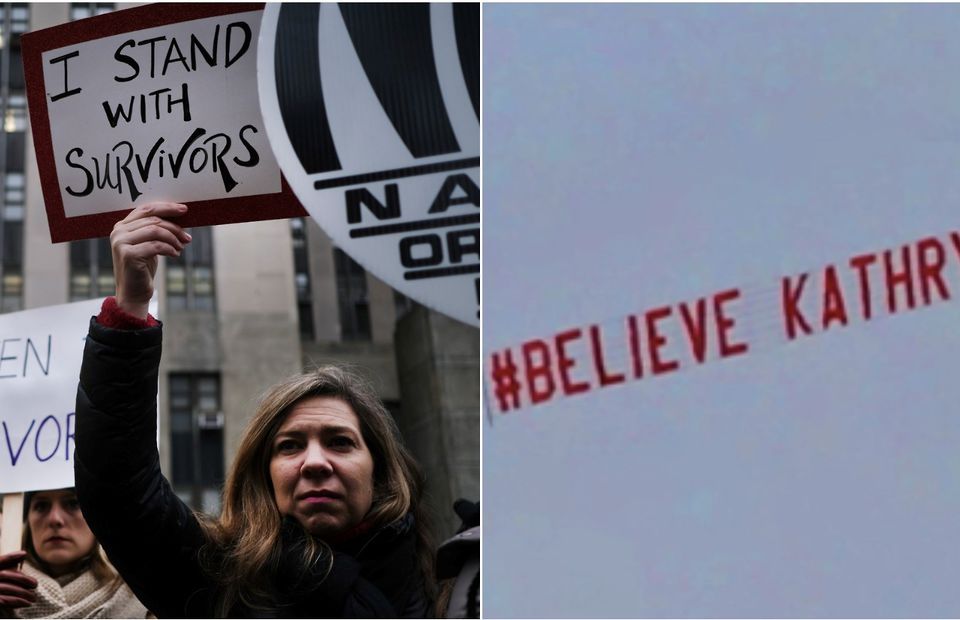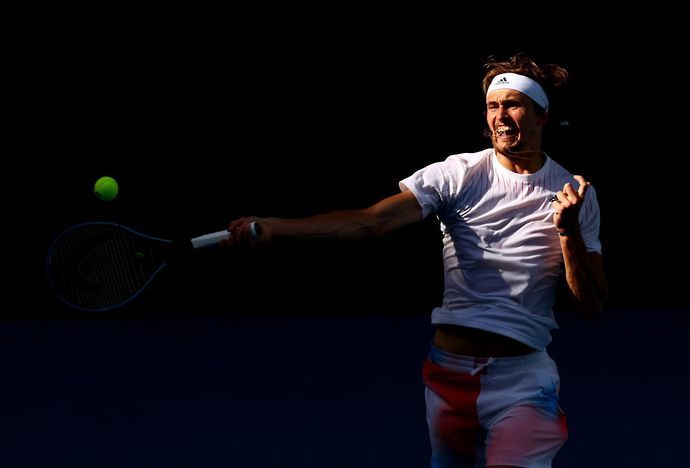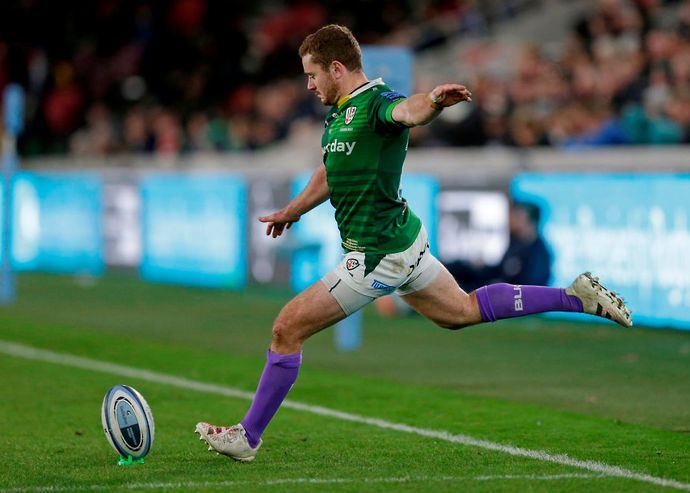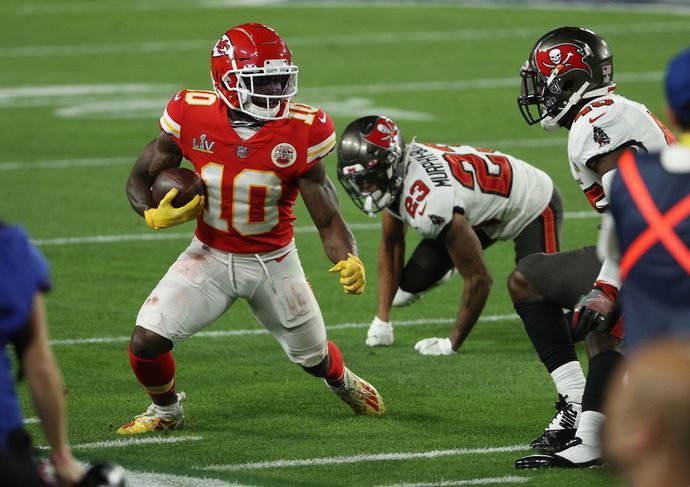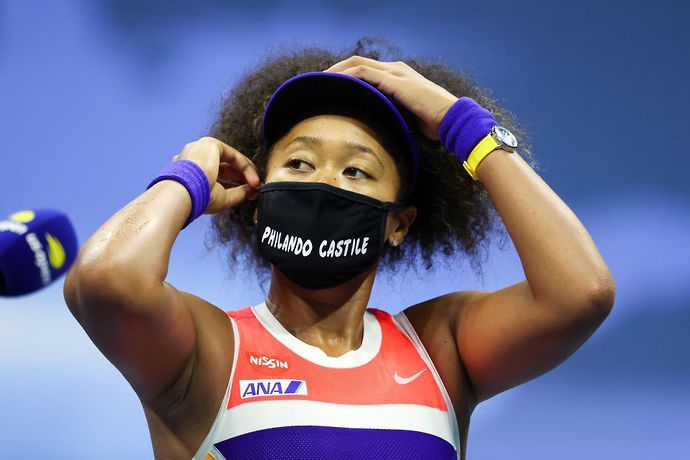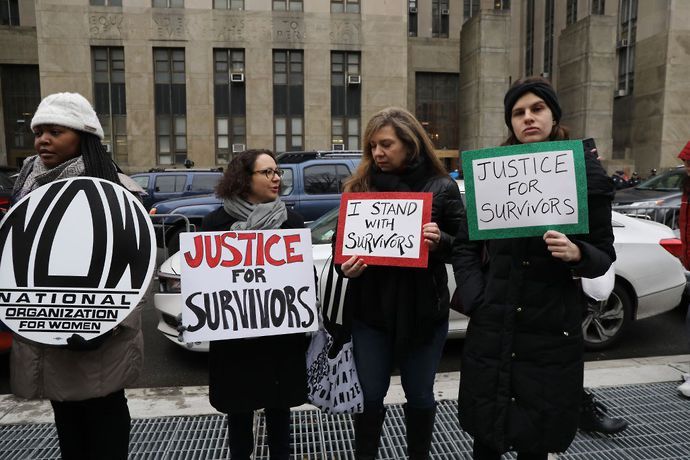On September 11th 2021, banners encompassed Old Trafford, hailing the homecoming of world-renowned footballer Cristiano Ronaldo to Manchester United.Also hovering over the Theatre of Dreams at the same time was a far more disturbing sign –– one which broadcasters chose to ignore. The banner, which was made by feminist campaign group Level Up, simply read: “#BelieveKathrynMayorga.”The hashtag relates to Ronaldo’s alleged rape of Mayorga in a Las Vegas hotel suite, back in 2009. Prosecutors declared the claims could not be “proved beyond reasonable doubt” and Ronaldo paid Mayorga $375,00 (£270,000) to keep silent on the accusations against him.Yet, as Ronaldo netted twice in front of more than 70,000 fans on his second debut for United, the overwhelming feeling among the crowd was one of adulation, not condemnation.Discarded were any reminders of his alleged wrongdoing. Instead, the Portuguese striker returned to a hero's welcome. Loved, lauded and lavishly showered with attention –– for he, according to fans, players and the club, was nothing short of an icon.This essentially sums up the problem. Domestic abuse and sexual assault cases are rife among professional sportspeople and have been for far too long. In many cases, these alleged perpetrators are among the most prominent athletes on the planet.But whether it be a deliberate avoidance of the issues in question, blind ignorance, or simply repudiating any suggestion of wrongdoing, sport itself has failed to acknowledge there is a problem.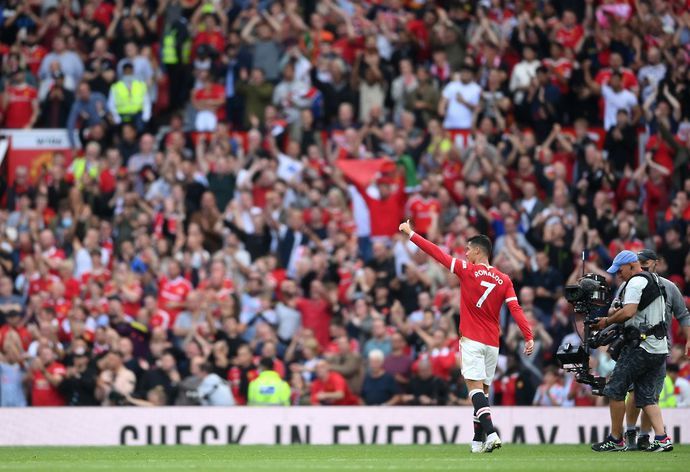 In the past week alone, former Chelsea manager Avram Grant has been accused of sexual harassment and Man United forward Mason Greenwood has been arrested over claims of sexual assault.Rayo Vallecano chose to stand by their women’s coach who has previously made gang rape remarks, while Raith Rovers women’s captain Tyler Rattray quit after the club signed convicted rapist David Goodwillie.And these are just football incidents. Across the wider sporting spectrum, an ex-England rugby star was arrested on suspicion of sexual assault last month, NBA player Jaxson Hayes was charged with domestic violence a matter of days ago, and former track coach Alberto Salazar was recently banned from US athletics for alleged sexual assault.No sport appears directly immune from these sorts of accusations. Equally, no sport has seemingly taken an active stand to address the perpetual issue of domestic violence. For some time now, steadfast silence has permeated the sporting community and at present, this ugly truth is showing no signs of going away.
In the past week alone, former Chelsea manager Avram Grant has been accused of sexual harassment and Man United forward Mason Greenwood has been arrested over claims of sexual assault.Rayo Vallecano chose to stand by their women’s coach who has previously made gang rape remarks, while Raith Rovers women’s captain Tyler Rattray quit after the club signed convicted rapist David Goodwillie.And these are just football incidents. Across the wider sporting spectrum, an ex-England rugby star was arrested on suspicion of sexual assault last month, NBA player Jaxson Hayes was charged with domestic violence a matter of days ago, and former track coach Alberto Salazar was recently banned from US athletics for alleged sexual assault.No sport appears directly immune from these sorts of accusations. Equally, no sport has seemingly taken an active stand to address the perpetual issue of domestic violence. For some time now, steadfast silence has permeated the sporting community and at present, this ugly truth is showing no signs of going away.
The fear of speaking out
While it’s not possible to fully determine the motivations of specific individuals and sports teams when it comes to not speaking out, there are several probable reasons for this silence.
The first is perhaps the most obvious –– fear. The fear of involving yourself in the situation. The fear of repercussions for exemplifying the truth. The fear of being cast into the media spotlight.
This mindset is ostensibly true of many athletes but is heightened even more so in individual sports, such as tennis.
Indeed, in the tennis world right now, world number three Alexander Zverev has had domestic abuse allegations hanging over him since October 2020. The German is accused of physically and emotionally abusing ex-girlfriend Olga Sharypova over the course of their relationship.
The ATP, who took almost two weeks to issue a statement following the details of this case being made public, stressed that it “condemns any form of violence or abuse,” and expected “all members of the tour to do the same.”
Yet, tennis stars have been decidedly unforthcoming in addressing the situation. Andy Murray –– a player that has offered his support for women’s causes, called on the Tour to be more “proactive” in dealing with the case.
And though others are clearly aware of the allegations surrounding Zverev, few have addressed their thoughts publicly. Reilly Opelka, a two-time winner on the ATP Tour, made comments on Zverev at last year’s Laver Cup, though this was only in an overheard clip during a team talk. (insert tweet below)
In light of Opelka’s remarks, Ben Rothenberg, a tennis journalist who first broke details of Sharypova’s claims, urged the media to ask more questions to players on this topic –– outlining that individuals are only likely to speak out when prompted.
Forgive and forget
Aside from fear, there is an argument to suggest many have simply chosen to forget about accusations against certain athletes, now that ‘sufficient’ time has passed.
In 2018, Irish rugby player Paddy Jackson had his contract revoked by Ulster after the fly-half was subject to a rape enquiry along with three of his friends.
Despite his banishment from Irish rugby, other clubs ignored the allegations hanging over Jackson and took the decision to sign him.
In 2019, the 30-year-old signed for English side London Irish, which led to beverage company Diageo removing their branding from the club, having sponsored Irish for 27 years.
Two years on, in September of last year, Jackson was confirmed to be taking up a leadership role with the club, acting as support for captain Matt Rogerson.
His domestic form has also seen some Irish fans and journalists clamouring for his re-inclusion in the national side –– though Irish Rugby, to their credit, refuse to change to their stance on his banishment.
Nonetheless, so long as Jackson continues playing for London Irish, this debate is always likely to persist.
The issue for many is not necessarily that Irish decided to offer Jackson a contract, but rather that no action has subsequently been taken.
The club could have used this as an opportunity to educate young men on the topic of domestic violence or worked with charities and organisations that deal with survivors of abuse, yet they consciously rejected this approach.
In a bid to make a stand, a rugby analyst who goes by the name Squidge Rugby on YouTube has decided to donate £1 to The Survivor’s Trust for every point Jackson scores for London Irish for the duration of his time at the club.
The problem of greed
Above all else, however, the most unsavoury reasoning for the collective silence concerning domestic violence is greed. Devon Ramsay, a former American football player for the University of North Carolina once said:
There exists a culture that demonises anything that doesn’t directly help the program.
US sports are the worst offenders when it comes to such a mindset. Last year’s Super Bowl between the Tampa Bay Buccaneers and the Kansas City Chiefs featured two players who had both been accused of domestic abuse.
Chiefs wide receiver Tyreek Hill pleaded guilty to domestic assault against his pregnant girlfriend in 2014. Similarly, Antonio Brown’s former trainer Britney Talor filed a lawsuit alleging he sexually assaulted her on three occasions.
In this way, many athletes, most notably NFL stars, are treated as though they are above the law. The systemised protection of such athletes stems from these institutions valuing the cost of winning above moral integrity and has led to a culture of unaccountability.
What action should be taken?
A number of athletes have regularly used their platform and influence to help inspire meaningful change.
US football star Megan Rapinoe has been a voice for many on LGBTQ inclusivity and equal pay. Naomi Osaka supported the Black Lives Matter movement by wearing different masks with victims names on for each of her matches on course to winning the 2020 US Open. And Marcus Rashford received widespread praise for successfully convincing the UK government to provide free school meals to disadvantaged children.
Yet, athletes raising awareness for the prevention of domestic violence remain scarce –– so what can be done to change this entrenched societal issue?
However obvious it may seem, speaking out is arguably the most important first step. It took a global movement and the courage of many for the deep roots of racial injustice to come to the forefront after so long.
The media must challenge players, coaches and team principles on the subject. Equally, players and organisations must acknowledge there is a problem that needs addressing.
It is only then that perpetrators will be condemned and punished accordingly. There should be no forgiveness, no forgetting and no foreseeable future for those who are guilty. Sport must change the precedent from assuming the normal rules don’t apply and accept the sporting world has the same moral obligations as the rest of society.
The vast majority of these alleged crimes have been committed against women and sport must face up to this fact and recognise the importance of creating a safer place for female athletes to work and compete.
Stop pretending there is nothing to see. Stop presuming innocence until questioned. Stop sweeping the issue under the carpet. Domestic violence and sexual assault is life-shattering, traumatic and deeply personal for victims. And silence is no justification for a clear conscience –– it’s an admission of culpability.




















